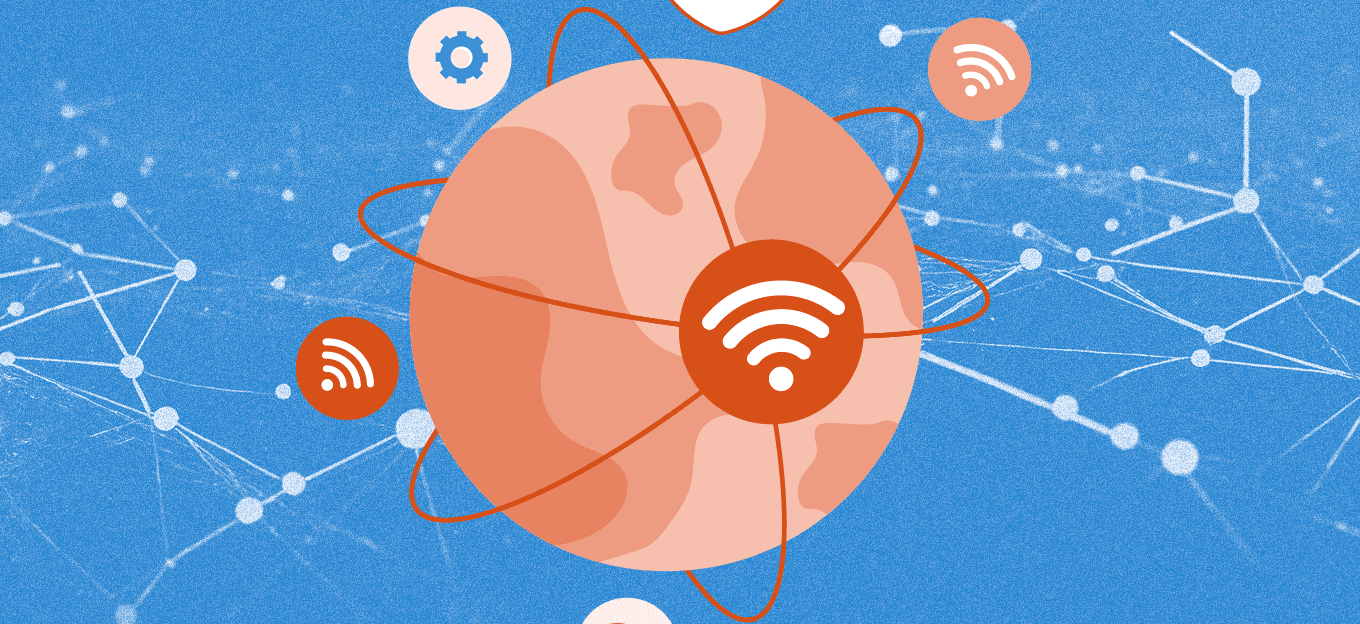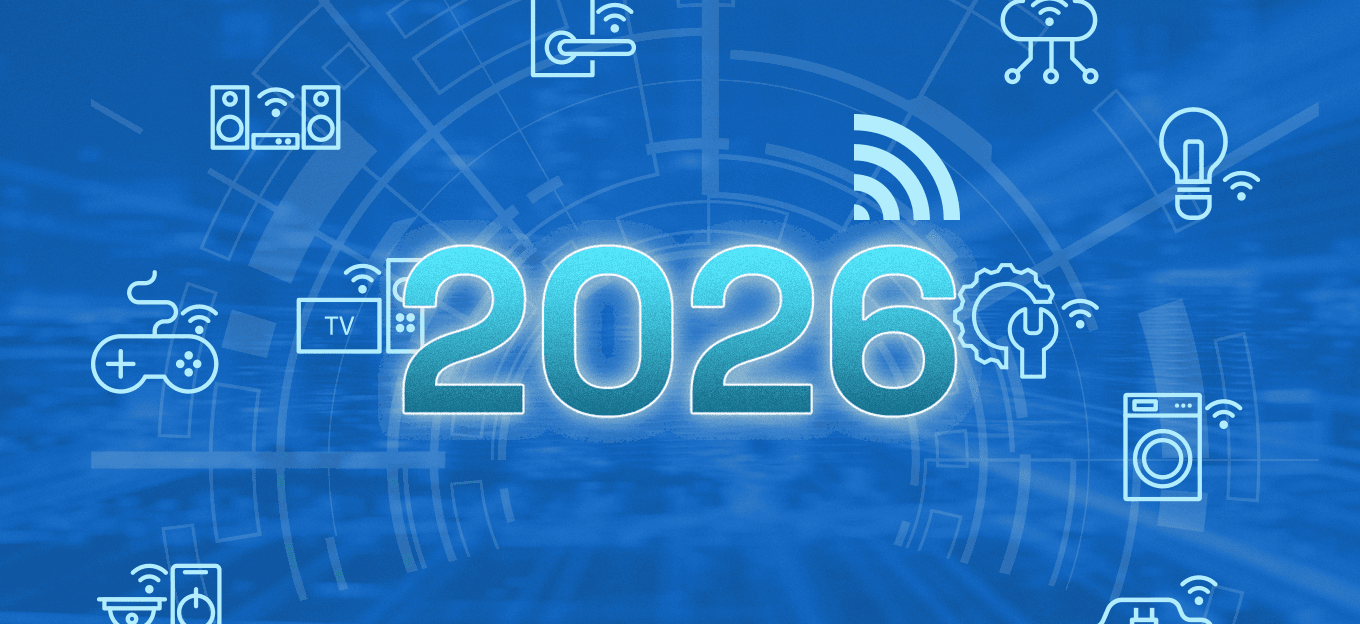Enhancing B2B Customer Engagement with IoT
Enhancing B2B Customer Engagement with IoT
- Last Updated: December 2, 2024
Guest Writer
- Last Updated: December 2, 2024



The Internet of Things (IoT) is a well-known term in today’s digitally transforming world. It is giving a revolutionary impact on people’s lives and the business sectors. The concept of IoT is all about making things smarter and faster. Starting from smartphones, wearable fitness, and trackers, intelligent home appliances, IoT is the focal point that makes it possible. IoT consists of sensors and devices that communicate with the cloud, forming robust connectivity. With the rapid growth in its usage for capturing the vast amount of data, IoT products are opening new ways for every business, especially for B2B. Apart from following the traditional approaches, IoT comes up with many opportunities that make their processes more meaningful and potent.
IoT is the most inspiring tool in the business domain, providing businesses with entirely new working environments.
Are you running a B2B company and haven’t yet come across the wonders IoT can bring to your business? In that case, you are in the right spot. This article is all about showing the amazing opportunities and strategies you, as a B2B owner, can use to enhance your workability, along with the possibilities of improving customer engagement by employing IoT.
Impact Of IoT On B2B
B2B, the company that focuses on selling its products and services to other organizations, needs enhanced solutions. IoT plays a significant role in their growth and enhancement. It also improves its overall living standards. Let’s go through the enormous benefits companies can achieve.
Innovate Business Operations
Innovation is now becoming an undeniable aspect of every business, without which it’s quite tricky to survive in the market. With every passing day, businesses are experiencing changes with the motive of improvement. Yet, not all results are reliable. And this is precisely what leads to innovation, where a mistake can be rectified with a new approach. In fact, the various technologies that we have today are all a result of the experiences of different innovators, which has brought a significant difference to the business’s operations.
Who would have thought that the payroll process could be accomplished in a few hours? However, the growth of technology and its right adoption have helped in innovating ways for HR management. IoT provides a platform for automatically detecting workers’ presence, thereby making the process more flexible and effective to handle. Many companies that have partnered with software development firms are adopting such innovations in their product functionality. And similarly, the opportunities that the IoT platform brings in for businesses are tremendous and overwhelming for building new and approachable strategies for its flourishment.
Effective Supply Chain
With IoT, the requirement for managing the supply chain reduces to a great extent. It streamlines the operationalities by embedding sensors in the manufacturing equipment and electronic devices. With more internet-connected devices, the availability of real-time data also increases. It smoothens the supply chain by providing instant tracking functionality. The end-to-end shipping process becomes more informative and compelling for both parties. Barcodes are attached to the manufacturing products that show data related to the product code, manufacturer details, and a particular set of instructions. It helps to keep track of the available stock and reduces the condition of suffering from out-of-stock.
Better Marketing Approaches
With IoT, organizations can expand their marketing reach overseas. It enables a channel that shares the data without the need for interaction between humans. Predictive analysis helps to learn about the market behavior and accordingly betters decision making. They can get factual data about their product usage and services to plan their strategies well to enhance customer experience.
Added to it, the data-driven marketing approaches can analyze user’s behavior using web-connected platforms. It maximizes the possibilities to reach the target audience directly rather than relying on any advertising media to convey their message.
Enhanced Competition
The amalgamation of IoT with B2B opens the platform for many industries in the market. It works as a boosting element that prepares the company for giving a tough competition. Gathering data from the whole production area quickly will lead to giving real-time information. It improves working efficiency and productivity.
IoT improves the usage of data and the connectivity with the devices. It incorporates intelligence in the process, which ultimately results in developing a structure that works actively. It leads to developing a competitive advantage by improving the quality and quantity of work. Including IoT in the roadmap of B2B will lead to bringing fruitful benefits to the business by accelerating the working methodology.
Management Optimization
Sensors are the ones that provide preliminary information to the manufactures about the need for maintenance of the equipment. This in-built functionality will help them to take preemptive measures against the issues. It also predicts if there are any errors and the possibility to mend them.
The mechanism for transferring the information to the respective operator starts with finding and collecting the data. Through the internet, it passes the collected data to the desired person wirelessly.
Knowing in advance about such requirements will help the company to reduce the cost of repairing it. It becomes possible to manage the workflow accurately, even without human involvement. Such advancement in the working process reduces maintenance efforts and makes the procedure smarter.
A similar concept is used by Tech Mahindra in the manufacturing of Smart Labs. Chief Operating Officer L.Ravichandran said that identification and implementation of the right solution is a critical task. IoT is one of the technologies they mentioned that reduces human intervention and improves working intelligence.
Customer Engagement Impact
Companies are adopting IoT platforms for enhancing their processes; ultimately, it is all about doing their best to improve customer engagement. Refer to the points below to get detailed knowledge about the same.
Data Matters
Human nature often changes. What they speak and do can change in a couple of minutes. This constantly changing human aspect is one of the greatest challenges for B2Bs. And most predominantly, it leads to the scenario of disbelief in the customer’s review, giving rise to the question - “Now What?”. The only appropriate and applicable answer is data. And IoT plays the role of a rescuer by showing veracity.
Tracking customer behavior and their actions can provide actual data about their experience and expectations with the product or services. Data sharing with the employees of B2B will help them to assist their requirements better. It works as taking a step ahead for making the organization customer-centric.
B2B retailers like Walmart India can identify the number of users that are logged into their website. Trial period and festive sales are sales improving strategies they can apply by analyzing their interest area and preferences.
Personalized Customer Interaction
Clients’ expectations do not get limited to the product or service they buy. They want more than just getting the desired commodities. Considering this situation, the concept of personalization has occurred.
CRM (Customer Relationship Management) is the finest tool that helps the marketing team handle all its data. It helps in better anticipating and tracking their needs. B2B companies, primarily recruiting firms, can get the maximum benefit from it for their long sales cycle. IoT technology utilizes the captured data for building effective tactics for client engagement. With data usage and geolocation, the team can identify where the possible targeted audience is located.
Usage data is an excellent platform for observing customer affiance with the product or service; lacking in usage results in generating trouble. After delivering a product, you must make sure that they entirely utilize all the product features. Reminding them of that will lead to giving the relationship a personal touch. It is all possible because of IoT.
Such data helps the team to know that the respective client hasn’t yet used all the functionalities. Customers develop the feeling of getting value for connecting with the organization and enhancing future relationships.
Streamlined Functioning
An unbroken link is a prerequisite for a continuous supply chain for B2B. This is now achievable with IoT, as it reinvents business to ensure the smooth running of the process. With the help of RFID (Radio Frequency Identification Device), you can track all the items’ details. It allows tracking the route of the product. Further, it helps to know about the respective delivery time that helps smooth delivery of the product.
One of the most beneficial uses of RFID tag is that it performs inspection before delivering the product. It improves the quality of the service and reduces the chances of it getting returned. Primarily, B2Bs are using it to enhance the efficiency of the whole delivery cycle.
Informed Approach
The marketing and sales team often find difficulties in finding the best process to engage with their customers. IoT is the one that helps them to make efforts in an actual direction. They notify about the need for preservation, preferably before occurring. It allows the company to perform proper measures so that it does not affect the working of the customers. IoT provides notification to them about such requirements in the product. It shows your carefulness towards them and results in bringing more customer satisfaction.
In a Nutshell
IoT is the most inspiring tool in the business domain. B2B gets enormous benefits from it as it opens an entirely new working environment for them. Considering the above perspectives, IoT can impact the B2B positively, which makes their process smarter when embraced. It smoothens workability and continues to innovate the business processes.
Author Bio:
Sweta is an experienced content strategist at FactoHR, having a keen interest in communication and the latest trends that are useful to entrepreneurs. Her passion for learning aids the team members in representing new ideas that later help businesses achieve their mission and vision.
The Most Comprehensive IoT Newsletter for Enterprises
Showcasing the highest-quality content, resources, news, and insights from the world of the Internet of Things. Subscribe to remain informed and up-to-date.
New Podcast Episode

How Smart Labels Transform the Supply Chain
Related Articles


